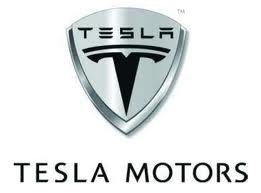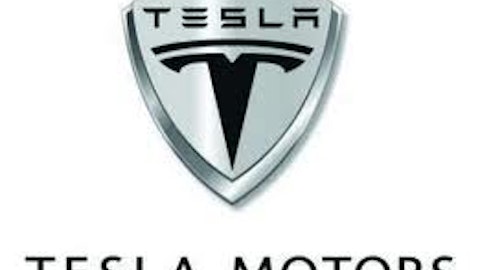
With Tesla stock surging ever higher — based on the after-hours price it has doubled since I highlighted its good prospects in late February — investors may naturally wonder if the market is getting ahead of itself. After all, nearly 50% of Tesla Motors Inc (NASDAQ:TSLA)’s publicly traded float had been sold short as of mid-April, suggesting that many people doubt the company’s prospects. However, I believe that Tesla still has plenty of upside. The electric-car market is in its infancy, and Tesla is well-positioned to be the top player.
Model S demand is strong
One of the most encouraging pieces of information conveyed by Tesla Motors Inc (NASDAQ:TSLA)’s management in the quarterly shareholder letter was that the rate of Model S orders currently exceeds production capacity. Tesla raised its 2013 production guidance from 20,000 to 21,000, and it sounds like the company may want to ramp up production even further if recent demand trends continue.

The Tesla Model S (courtesy of Tesla)
Moreover, as Tesla cars are delivered in any particular market, orders increase there. This suggests that Tesla owners are recommending the car, and that people who see a Tesla Model S in action are more likely to go buy one subsequently. One of the biggest risks to the Tesla investment case is that the electric-car movement might just be a fad: i.e. a few “green” enthusiasts will pay up for one, but there is no lasting demand. Tesla’s initial data seems to refute this notion.
The long-term thesis
Model S demand may be strong, but after Wednesday’s after-hours surge, Tesla Motors Inc (NASDAQ:TSLA) has an $8 billion market cap. Meanwhile, General Motors Company (NYSE:GM), which — along with its joint venture partners — sold 9.3 million vehicles last year, is worth just $44 billion. Does Tesla, which has one relatively low-volume product, deserve to be in the same “market-cap league” as a global automaker like GM?
Based on Tesla’s emerging dominance of the electric-car market, I think the answer is yes. In the U.S., the Model S is already outselling GM’s Chevy Volt, Nissan’s LEAF, and Toyota Motor Corporation (ADR) (NYSE:TM)‘s Prius plug-in. Meanwhile, Tesla’s fellow electric-car start-up, Fisker, is on the verge of liquidation.
Tesla already has an edge over its larger competitors in terms of electric powertrain and battery technology: that’s why Toyota and Mercedes are paying to share that technology for their electric vehicles. Production of the Model S will allow Tesla Motors Inc (NASDAQ:TSLA) to improve its operational expertise and pave the way for new models, potentially including a lower-cost (and higher-volume) car.

